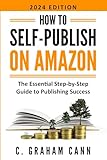Why Should I Buy Your Book?
Book Coach Judy Cullins tells you how to turn 'Lookie Loos' into Take-out-the-Credit Card-Buyers

You say your book has lists, how-tos, easy-to-read recipes? 124 pages? Do these features give your potential buyer enough of a reason to buy your book?
Probably not, unless they are your best friends. Instead, let your reader see and hear reasons to buy by placing "selling" words (benefits) with your features.
Answer your buyer's questions about how your book will make them richer, healthier, and make their life easier. Memorize these benefits and have them ready to share when someone asks you about your book. Leave the plot or story out. Stick to the sixty-second "tell and sell." Or, when you write copy about your book, sprinkle those benefits around on your front and back cover, in your introduction, in your table of contents and on your Web site book sales letter.
Potential buyers want these essential "Hot Selling Points" first, before they will open the book to skim the chapters or buy your book.
Benefits are the words that will bring your buyer running. Why? Because benefits are the end result of satisfactory use of your product. For instance, one book coaching client's new book, "Not on My Table: Protecting Your Children from Poisons in Our Food, "wrote: Includes: "quick- scan shopping lists." Turning these features into reasons to buy, I suggested adding a benefit: "stop confusion with the "quick-scan, time-saving shopping list."
Your audience wants results--challenges and problems solved. They want to feel good inside, savvy, and that they are doing the right thing by buying your book. Put a little emotion in those benefits. So, keep your features, but preface them with benefits. Your buyer must be persuaded by your words and know your book will satisfy their emotional wants and practical needs. Give your readers a reason to buy.
How to Write Benefits and Features for Your Book
On an 8.5 by 11" paper make a list:
- Write the exact name of each product/service you want your prospect to buy. Write your title. For instance the eBook, "Ten Ways to Market Your Book Online."
- Write three features of your book. These are distinguishing facts about your product. For instance, Ten Ways includes 1) simple, step-by-step "how to" exercises to start an ezine, 2) useful web site addresses and links for marketing your book through writing short articles and tips, and 3) specific book internet marketing coach's time and money-saving tips throughout the book.
- Write three benefits of your book. These are the advantages your buyer gain as a result of the features listed above.
- Build business credibility, trust
- Produce 1/3 to 2/3 monthly income for life
- Market and promote online for no cost
- Put them together for a strong headline or sales piece.
- Build credibility, trust and profits when you create and send out a regularly scheduled ezine.
- Promote your book fast and easy with this book's opt-in-ezine and web address listed as links. Just copy and paste.
- Save time receiving needed information with easy-to-read and time saving "author tips."
Here's a few samples:
Here's a few samples:
Remember, adding practical and emotional benefits to your features about your book will hook your "lookie loos" into a "take-out-the-credit-card" buyer.
Judy Cullins: 20-year author, speaker, book coach Helps entrepreneurs manifest their book and web dreams eBk: "Ten Non-Techie Ways to Market your Book Online" 7000 Melody Lane, La Mesa, CA 91942 FREE "The Book Coach Says..." or Business Tip of the Month -- mailto:Judy@bookcoaching.com Orders: 866/200-9743 -- Ph: 619/466-0622
Read These Next
Will E-Books Topple Publishers as We Know Them?
Are the major publishing houses we love and revile about to come tumbling down, undermined by a million e-bookers? Yes, says Smashwords’ founder Mark Coker, there’s a revolution afoot. No, says Berrett-Koehler’s David Marshall, the new publishing houses will just be different and better. The odd man out, publishing consultant Peter Beren, thinks the traditional publishers will not only survive, they will probably just absorb the current e-book craze and crazies.
Getting Started as a Children's Book Illustrator
Becoming a children's book illustrator is no easy task. No matter how talented you are, there are literally thousands of other talented illustrators out there looking for the same break you are. So how do you stand out from the crowd and be noticed?
Succeed in your Resolution to Write a Novel This Year
If your resolution for the coming year is to finally finish that novel, here are some tips to help you successfully achieve that goal.







 Self-Publishing for Dummies (For Dummies: Learning Made Easy)
Self-Publishing for Dummies (For Dummies: Learning Made Easy) Self Publishing To Amazon KDP In 2023 - A Beginners Guide To Selling E-books, Audiobooks & Paperbacks On Amazon, Audible & Beyond
Self Publishing To Amazon KDP In 2023 - A Beginners Guide To Selling E-books, Audiobooks & Paperbacks On Amazon, Audible & Beyond Self Publishing To Amazon KDP In 2024 - A Beginners Guide To Selling E-books, Audiobooks & Paperbacks On Amazon, Audible & Beyond
Self Publishing To Amazon KDP In 2024 - A Beginners Guide To Selling E-books, Audiobooks & Paperbacks On Amazon, Audible & Beyond Write. Publish. Repeat. (The No-Luck-Required Guide to Self-Publishing Success)
Write. Publish. Repeat. (The No-Luck-Required Guide to Self-Publishing Success) Self-Publishing: The Secret Guide To Becoming A Best Seller (Self Publishing Disruption Book 2)
Self-Publishing: The Secret Guide To Becoming A Best Seller (Self Publishing Disruption Book 2) How to Self-Publish Your Book: A Complete Guide to Writing, Editing, Marketing & Selling Your Own Book
How to Self-Publish Your Book: A Complete Guide to Writing, Editing, Marketing & Selling Your Own Book How to Self-Publish on Amazon: The Essential Step-by-Step Guide to Publishing Success
How to Self-Publish on Amazon: The Essential Step-by-Step Guide to Publishing Success Self-Publisher's Legal Handbook: Updated Guide to Protecting Your Rights and Wallet
Self-Publisher's Legal Handbook: Updated Guide to Protecting Your Rights and Wallet Self-Publishing Simplified: How to Publish a Book on Amazon KDP for Beginners
Self-Publishing Simplified: How to Publish a Book on Amazon KDP for Beginners Successful Self-Publishing: How to self-publish and market your book in ebook and print (Creative Business Books for Writers and Authors)
Successful Self-Publishing: How to self-publish and market your book in ebook and print (Creative Business Books for Writers and Authors)